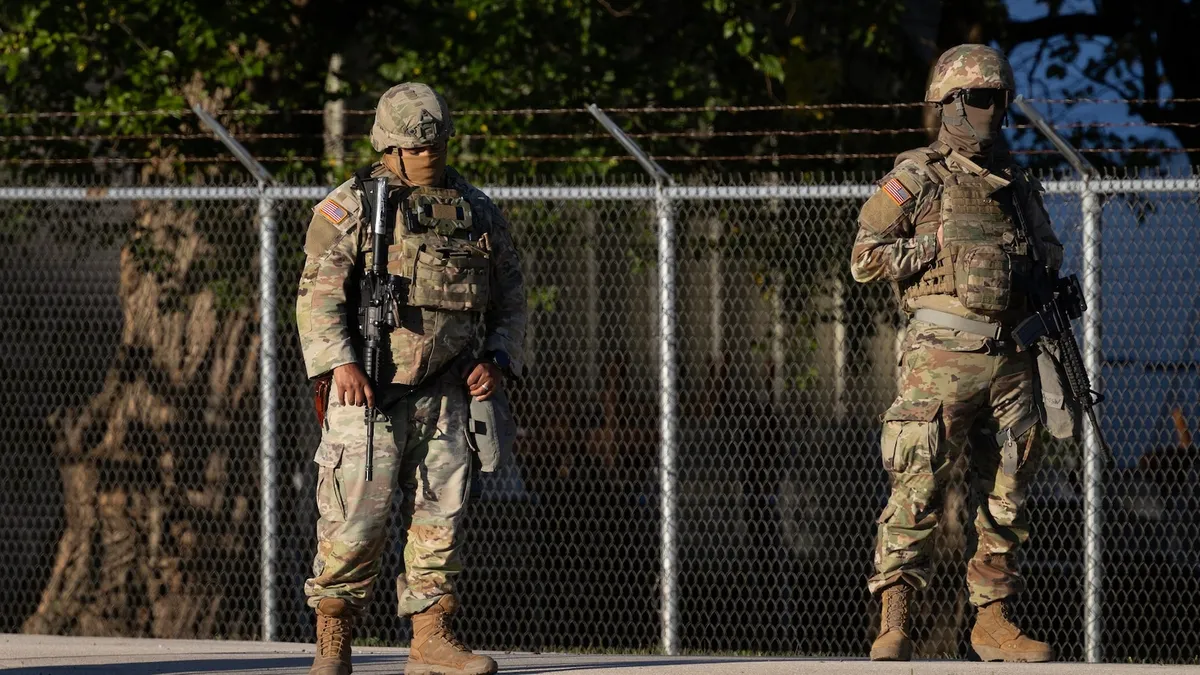
A federal appeals court panel has made a significant decision regarding the Trump administration's attempt to deploy National Guard troops in Illinois. The panel, consisting of three judges from the 7th Circuit Court of Appeals, has denied a request from the Trump administration to lift a lower court's order that blocks this deployment. This ruling is pivotal as it highlights the ongoing legal battles surrounding the use of National Guard troops in domestic issues.
The appeals court panel determined that the Trump administration's decision to deploy National Guard troops likely violates the Tenth Amendment of the U.S. Constitution, which reserves certain powers for the states. The panel expressed skepticism about the administration's ability to demonstrate that there is a rebellion against the U.S. government or that the president is unable to execute the law using regular forces. This decision effectively maintains the current legal status in Illinois, preventing the deployment of federalized Guardsmen.
Over the weekend, the appeals court allowed the federal government to retain control over the Guard troops but upheld the block on the Trump administration's deployment of federalized Guardsmen within Illinois. This temporary restraining order, which was originally imposed by a lower court judge, is set to remain in effect until October 23. A hearing has been scheduled by U.S. District Judge April for October 22 to assess whether to extend this order.
As of last week, approximately 200 federalized National Guard troops from Texas and 14 from California are stationed in Illinois. Additionally, around 300 Guardsmen from Illinois have been mobilized by President Trump, despite opposition from Governor JB Pritzker. The president has argued that these Guard troops are essential for crime prevention in Chicago, which he has referred to as a "war zone." Furthermore, the Trump administration claims that the troops are necessary to protect federal immigration facilities that have experienced protests and clashes with federal agents during heightened immigration enforcement.
The appeals court panel noted that there is minimal evidence to support the notion that protests in Chicago equate to a rebellion. The judges clarified that political opposition does not constitute rebellion, stating, “We see insufficient evidence of a rebellion or danger of rebellion in Illinois.” They further emphasized that the actions of demonstrators protesting the federal government's immigration policies, although sometimes spirited and violent, do not indicate a substantial threat to government authority.
The judges also found that there was inadequate evidence suggesting that protest activities in Illinois have significantly hindered federal officers' ability to enforce federal immigration laws. Notably, an immigration facility located in the Broadview suburb of Chicago has faced regular protests but has remained operational, with local, state, and federal authorities managing the protests effectively. Moreover, the panel pointed out that immigration arrests and deportations have continued consistently in Illinois over the past year, underscoring the administration's claims of success in enforcing immigration laws in the Chicago area.
The appeals court's ruling reflects a broader struggle over the deployment of National Guard troops in response to domestic unrest and immigration enforcement. As the situation evolves, the Trump administration's arguments and the implications of this ruling will remain subjects of significant public interest and legal scrutiny.